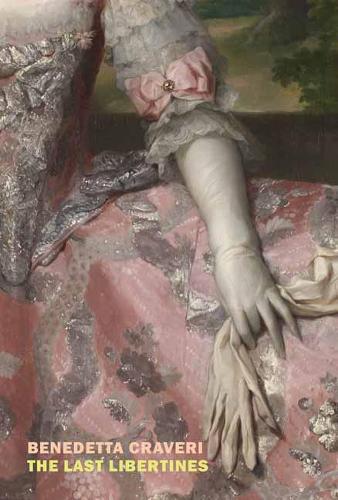
The Last Libertines
(Hardback)
Publishing Details
The Last Libertines
By (Author) Benedetta Craveri
Translated by Aaron Kerner
New York Review Books
New York Review Books
26th May 2020
United States
Classifications
General
Non Fiction
Social and cultural history
B
Physical Properties
Hardback
620
Width 139mm, Height 210mm
Description
An enthralling work of history about the Libertine generation that came up during--and was eventually destroyed by--the French Revolution. The Last Libertines, as Benedetta Craveri writes in her preface to the book, "tells the story of a group of young aristocrats living in the last days of the French monarchy, when it was still possible for the members of the elite to reconcile a way of life based on status and privilege with a belief, born of the Enlightenment, in the necessity for social transformation and the new ideals of justice, tolerance, and civility." Here we meet seven emblematic characters, whom Craveri has singled out not only for the "novelistic quality of their lives and loves" but also, perhaps above all, for the fully conscious way in which they confronted the crisis of the ancien regime while looking ahead to a new world being born. Displaying the aristocratic virtues of "pride, courage, fashionable elegance, culture, spiritedness, and conviviality," the duc de Lauzun, the comte de Segur, the vicomte de Segur, the duc de Brissac, the comte de Narbonnes, the comte de Vaudreuil, and the chevalier de Boufflers were not only masters of the art of seduction but true sons of the Enlightenment, all ambitious to play their part in bringing around the great changes that were in the air. When the French Revolution came, however, they were condemned to poverty, exile, and in some cases execution. Telling the parallel lives of these seven dazzling but little-remembered historical figures, Craveri brings to light a vanished civilization and dramatizes a time of turmoil that may be said to anticipate our own.
Reviews
"Fanning out far beyond the individual stories of her protagonists, Craveri describes in fascinating detail Frances war against the British in America, the high politics and alliances of the European courts and the fashion for all things English that swept through Paris in the 1780s...Craveris use of the archives and prodigious amount of printed material is extremely impressive...There is little she does not touch on and she has a gift for bringing scenes alive....With these seven characters, Craveri has painted a rich, scholarly, highly enjoyable portrait of an extraordinary moment in French history." Caroline Moorehead,The Guardian
. . . .The Last Libertinesprovides a warmer picture of Craveris flawed but engaging subjects. Among its great charms are the quality and quantity of its gossipy anecdotes and the colorful portraits of its many incidental characters, including Joseph de Sabran who, running out of cannonballs in a naval battle against the British, packed his last gun with his table silver and blasted away. Throughout, Craveri quotes from her subjects witty writingsevidence of extraordinarily agile and imaginative minds, and largely representative of their class. This, along with their battle-tested courage leads one to wonder the question never really addressed by Craveri: how could men like them have lost to men like Saint-Just
James F. Penrose,New Criterion
The sheer energy of these seven aristocrats is astounding. . . . In the end, we cant help admiring these extraordinary people . . . they adhere to an aristocratic code of honour es exacting as any religiously-inspired ethic but much more stylish.Ivan Hewett,The Daily Telegraph
The Last Libertines is a composite picture, brilliantly written, of the young aristocrats who lived through the last days of the French monarchy, subscribed both to loyalty to the throne and to Enlightenment ideals of equality, and sometimes survived the Terror to move into the Napoleonic period. Like us they had to go through these difficult transitions, in their case with elegance and extraordinary gaiety. Edmund White
The Last Libertines is an elegant tale of intrigueamorous and political. Through the lives of seven aristocrats, Benedetta Craveri convincingly explores the ideals of libertinism as a link between the ancient regime and the new world order that followed. Cathleen Schine
"A beautiful subject of reflection on the end of a world too perfect in its essence to find the ways of its future." Culture-Tops
Author Bio
Benedetta Craveri is a professor of French literature at Tuscia University in Viterbo and the Universit degli Studi Suor Orsola Benincasa in Naples. She regularly contributes to The New York Review of Books and to the cultural pages of La Repubblica. Her books include Madame du Deffand and Her World, Maria Antonietta e lo scandalo della collana (Maria Antoinette and the Scandal of the Necklace), and The Age of Conversation, which is available from New York Review Books. Aaron Kerner is a translator, editor, and teacher who lives in Boston. His most recent translation was Christopher Kloeble's Almost Everything Very Fast.
